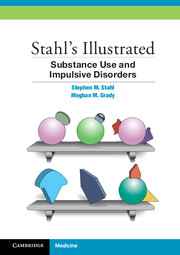Book contents
- Frontmatter
- Preface
- Contents
- CME Information
- Objectives
- Chapter 1 Substance Use and Addiction: An Overview
- Chapter 2 The Neurobiology of Reward and Drug Addiction
- Chapter 3 Alcohol
- Chapter 4 Opioids
- Chapter 5 Nicotine
- Chapter 6 Stimulants
- Chapter 7 Marijuana
- Chapter 8 Other Drugs of Abuse
- Chapter 9 Psychosocial Treatment for Substance Use Disorders
- Chapter 10 Disorders of Impulsivity and Compulsivity
- Summary
- Abbreviations
- References
- Index
- CME: Posttest and Certificate
Chapter 9 - Psychosocial Treatment for Substance Use Disorders
Published online by Cambridge University Press: 05 February 2013
- Frontmatter
- Preface
- Contents
- CME Information
- Objectives
- Chapter 1 Substance Use and Addiction: An Overview
- Chapter 2 The Neurobiology of Reward and Drug Addiction
- Chapter 3 Alcohol
- Chapter 4 Opioids
- Chapter 5 Nicotine
- Chapter 6 Stimulants
- Chapter 7 Marijuana
- Chapter 8 Other Drugs of Abuse
- Chapter 9 Psychosocial Treatment for Substance Use Disorders
- Chapter 10 Disorders of Impulsivity and Compulsivity
- Summary
- Abbreviations
- References
- Index
- CME: Posttest and Certificate
Summary
Psychosocial treatments are an extremely important component of substance use disorder management. Several different methods can be used, depending on the substance of abuse as well as the particular needs of the patient. In addition, psychosocial therapies can be applied in either an individual or a group setting. This chapter covers the most commonly used and recommended psychosocial therapies for patients with substance use disorders.
Contingency management has been used with a number of different substances of abuse. It involves incentives for desired behaviors (e.g., attending therapy sessions, adhering to pharmacological treatment) as well as negative consequences for undesirable behaviors (e.g., positive urine sample). Incentives may include vouchers for agreed-upon items.
Community reinforcement is designed to reward patients with substance use disorders for engaging in positive sober activities, such as family and social events. Specifically, the aim is to help create or enhance positive environmental factors that reinforce sobriety. Family and friend involvement is therefore an integral component of this therapy. Treatment may include marriage counseling, job counseling or training, or introduction to substance-free social environments.
With cue exposure, patients are exposed to stimuli that induce craving and drug anticipation but are prevented from actually obtaining the substance, with the idea that this will ultimately lead to the extinction of the conditioned craving response. Relaxation training may be incorporated to help aid the process.
Aversion therapy is intended to eliminate substance use behaviors by associating them with an unpleasant situation (e.g., smoking to the point of illness).
Motivational enhancement therapy (MET) is an adaptation of motivational interviewing whereby the therapist uses feedback to strengthen the patient's own motivation and commitment to change.
Although mutual support groups such as 12-step fellowships can be very beneficial in helping patients with substance use disorders, these programs are based on the premise that addiction is an illness in which those afflicted are unable to control their use of the drug. As such, they typically require complete abstinence as the goal. This may therefore pose conflict for patients with alcohol use disorder who are attempting to achieve reduced-risk drinking.
- Type
- Chapter
- Information
- Stahl's Illustrated Substance Use and Impulsive Disorders , pp. 133 - 142Publisher: Cambridge University PressPrint publication year: 2012



